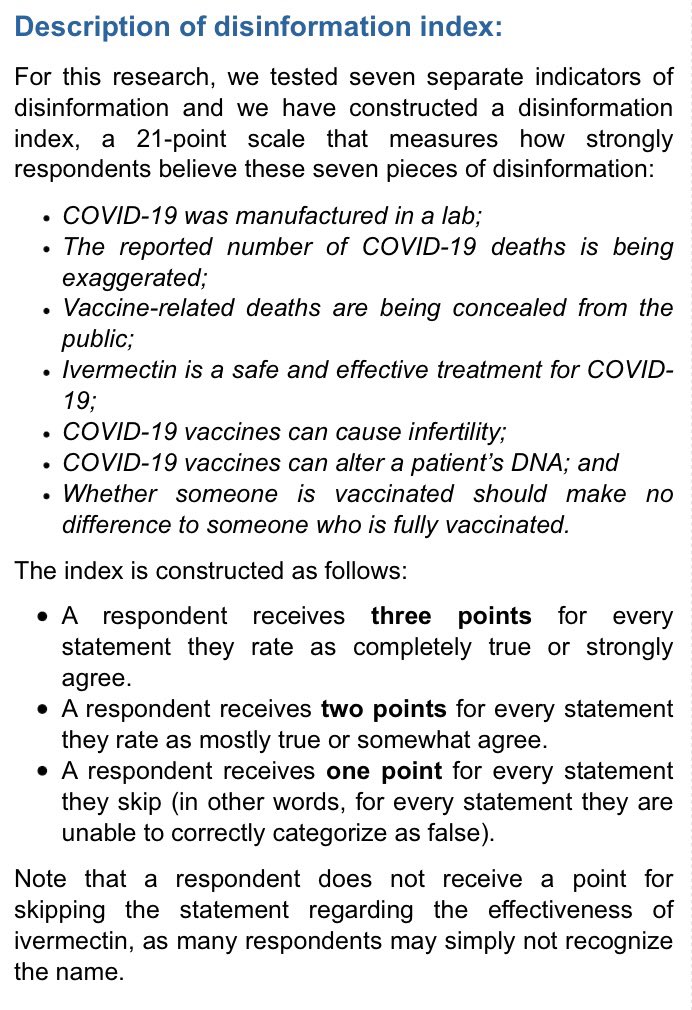
I keep seeing this chart circulating — I encourage everyone to read it’s methodology. It is one of the most dishonest surveys I’ve ever seen in my life and I break it down in this thread. 🧵
https://twitter.com/ProbitInc/status/1491533204985192449
The proposition they advance is “the more uninformed you are, the less you support vaccine passports”.
So in order to measure how “uninformed” someone is, they asked 7 questions and the more affirmatively people answered, the more uninformed this study claims they are.
So in order to measure how “uninformed” someone is, they asked 7 questions and the more affirmatively people answered, the more uninformed this study claims they are.
Makes sense…if those 7 false statements are, in fact false.
So what are those questions/statements?
Here they are; read them and see for yourself how broken this study is.
So what are those questions/statements?
Here they are; read them and see for yourself how broken this study is.

Question 5 is unquestionably false;
Question 6 has no concrete evidence supporting it, but not enough is known about it;
Question 7 is a debatable value judgment — not a factual question — and, on a fair consideration of all available evidence, is a TRUE statement;
Question 6 has no concrete evidence supporting it, but not enough is known about it;
Question 7 is a debatable value judgment — not a factual question — and, on a fair consideration of all available evidence, is a TRUE statement;
And Questions 1 and 2 were called misinformation by our information overlords early in the pandemic but are now considered credibly true statements by those same overlords.
So these questions are a mishmash of true, false and debatable questions. One question isn’t even factual; it’s a value judgement. Treating all questions as factually false (which is a precondition to this study being accurate) is dishonest.
It may be the case that people falling in the highest category (13-21 points) are mainly misinformed, but it’s very likely that people in the 6-12 point range are people with the most robust critical thinking skills. Of note, this category oppose vaccine mandates 60% vs. 23%.
What this study really proves conclusively is that people scoring low (0-5 points) are people with no critical thinking skills and who accept whatever the government tells them. So the true conclusion of this study is that the sheep support vaccine passports.
One additional point apart from the main point I make above. There’s another dishonest element to this study: it’s called a study about support for vaccine passports but the question they ask is about travelling, attending concerts and sporting events.
But most vax-passport related activity is attending restaurants, movie theatres, gyms & in some provinces going to stores. That variable (the dependent variable) would have had less support through ALL categories of independent variables if asked in relation to THOSE activities.
One final point is several tweets up, I mixed up question 5 and 6 when discussing them.
• • •
Missing some Tweet in this thread? You can try to
force a refresh



